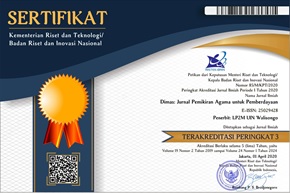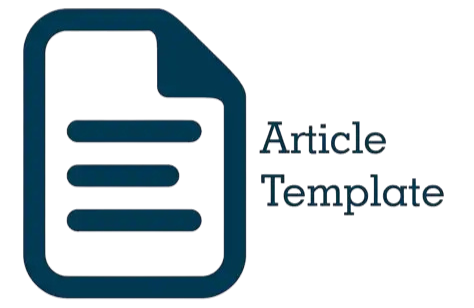Strengthening the Role of Women in Empowering Mosque Functions After the Covid 19 Pandemic with a Social Entrepreneurship Approach
DOI:
https://doi.org/10.21580/dms.2021.212.10355Keywords:
empowerment, mosque, entrepreneurshipAbstract
This service aims to increase women's awareness and capacity in managing the function of an economy-based mosque through Zakat, Infak, Shodaqoh, and Waqf (Ziswaf) funds. This departs from the fact in the community around the assisted mosque that in every majlis of women-based religious activities there is an economic sector that is built and developed with a savings and loan cooperative system. especially during the COVID-19 pandemic, the community's need for social institutions like this is very high, this can be seen from the number of borrowers at one of the women's ta'lim majlis which has increased sharply. Therefore, it is important to help increase their role and capacity, in the process of social change and improving people's welfare. Thus, institutionally mosques and mosque congregations as a community of the nation-state can contribute optimally in the national development process. The ability to master mosque empowerment strategies by developing zakat, infaq, shadaqah, and waqaf (ZISWAF) instruments is important to be mastered by mosque welfare officials and women driving economic activity in majlis ta'lim. The method applied in this program is Participatory Rural Appraisal (PRA) which prioritizes critical dialogue using object/community-based disclosure, to obtain a real perspective in the minds of the target object and at the same time fulfil the paradigmatic alignment as mentioned above. The approach taken in this program is a social entrepreneurship approach, which combines increasing the value of resources economically and streamlining social goals and missions. This approach aims to improve social aspects, as well as implement strategies that are integrated between social and economic aspects.
Downloads
References
Al-Faruq, A. (2010). Panduan Lengkap Mengelola dan Memakmurkan Masjid. Pustaka Arafah.
Asy-Syarbaasyi, A. (1997). Dialog Islam: Sebuah Renungan Islam tentang Agama dan Kehidupan dalam Perspektif Hukum. Penerbit Zikir.
Ayub, M. E. (1997). Manajemen Masjid. Gema Insani Press.
Fajran, Z. (2009). Rangkeum 2009 (Olah Pikir Aceh institute di Media). Aceh Institute Press.
Gazalba, S. (1971). Masjid Pusat Ibadat dan Kebudayaan Islam. Pustaka Antara.
Hasanuddin. (1996). Hukum Dakwah, Tinjauan Aspek Hukum dalam Berdakwah di Indonesia. Pedoman Ilmu Jaya.
Hornby, A. (1982). Oxford Dictionary. Oxford University Press.
Megawangi, R. (1999). Membiarkan berbeda? Sudut Pandang Baru tentang Relasi Gender. Mizan.
Poerwadarmintasia, W. J. S. (2005). Kamus Umum Bahasa Indonesia. Balai Pustaka.
Samad, D. (2008). Panduan Manajemen Masjid. Dewan Masjid Indonesia Kota Padang dan Pemerintah Kota Padang.
Shihab, M. Q. (1996). Wawasan Al-Qur’an, Tafsir Maudhu’i atas Pelbagai Persoalan Umat. Mizan.
Soekanto, S. (2014). Pokok pokok Sosiologi Hukum. Rajawali Press.
Umar, N. (2001). Argumen Kesetaraan Jender Perspektif Al Qur’an. Paramadina.
Yani, A. (2009). Panduan Memakmurkan Masjid. al-Qalam.
Downloads
Published
Issue
Section
License
Copyright
The copyright of the received article shall be assigned to the journal as the publisher of the journal. The intended copyright includes the right to publish the article in various forms (including reprints). The journal maintains the publishing rights to the published articles. Therefore, the author must submit a statement of the Copyright Transfer Agreement.*)
Licensing

This work is licensed under a Creative Commons Attribution-ShareAlike 4.0 International License.
In line with the license, authors are allowed to share and adapt the material. In addition, the material must be given appropriate credit, provided with a link to the license, and indicated if changes were made. If authors remix, transform or build upon the material, authors must distribute their contributions under the same license as the original.
_______
*) Authors whose articles are accepted for publication will receive confirmation via email and send a Copyright Transfer Agreement.









